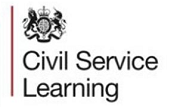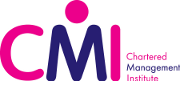





Structure of the qualification | Assessment | What exactly is involved? | What do I need to do first? | What do I need to produce? | How is my work assessed? | What support will I have? | Policies and Codes of Practice
The Level 7 qualifications in Strategic Management and Leadership are designed for senior managers and those aspiring to senior management who want to develop their strategic management and leadership skills and to focus on the requirements of the organisations strategy. They are designed for managers who have the authority and personal inspiration to translate organisational strategy into effective operational performance. As the operational delivery profession is made up of people, and their managers, who provide services directly to customers and the public it also encompasses face-to-face, contact centre and processing roles.
Level 7 Strategic Management and Leadership qualifications are made up of a number of units. Each unit is worth a number of credits. The approximate number of hours each unit should take you to complete are called guided learning hours (GLH).
Guided learning hours are made up of:
Within your Strategic Management and Leadership qualification there is currently the choice of studying for three different grades. The qualification selected will be determined by your personal development needs and the organisational requirements. The three grades are:
To achieve an Award you need to complete any combination of units to a minimum of 6 credits, with approximately 25-30 guided learning hours.
To achieve a Certificate you need to complete any combination of units to a minimum of 13 credits, with approximately 45-55 guided learning hours.
To achieve a Diploma you need to complete any combination of units to a minimum of 39 credits, with approximately 140 - 150 guided learning hours.
If you gain an Award in your qualification, you have the option to progress to a Certificate. If you gain a Certificate in your qualification, you have the option to progress to a Diploma.
To achieve success in a particular unit you need to show that you are able to meet the assessment criteria. There are a number of ways in which you can do this. These include your day-to-day work activities and the learning opportunities that you undertake as part of your normal professional development.
Many of the things you do as part of your development and applying this to your work will give you evidence that shows you fulfil the assessment criteria. How you get your evidence assessed is in the section: How do I get my work assessed?
The accredited qualification pathway sits beside the non-accredited pathway. This means that you will be undertaking some of the same learning opportunities as colleagues who have chosen not to follow the accreditation route. The difference is you will submit your evidence to show how you have applied this learning and met the CMI standards.
The accredited qualification pathway is designed to lead to a qualification so there will be some extra activity you need to do to provide the evidence that you meet the assessment criteria.
You will have already agreed the level and units you are aiming for with your Line Manager, and which development opportunities are the most appropriate for you.
Here is a list of the qualifying units available at Level 7.
|
Level 7 |
Qualifying units mapped to Management Essentials |
Credits |
GLH |
|---|---|---|---|
|
Unit 7001 |
Personal development as a strategic manager - this unit focuses on the ability to manage personal leadership development to support strategic achievement and evaluate the effectiveness of the leadership development plan. |
6 |
20 |
|
Unit 7002 |
Developing performance management strategies - this unit focuses on the setting, agreeing and monitoring of performance targets to improve team performance and help meet strategic objectives. |
7 |
25 |
|
Unit 7003 |
Financial management - this unit focuses on the ability to analyse financial data, assess budgets and evaluate financial proposals. |
7 |
30 |
|
Unit 7004 |
Strategic Information management - this unit focuses on the impact of management information on decision making and the importance of sharing information, alongside using information to inform and support strategic decision making. |
9 |
30 |
|
Unit 7005 |
Conducting a strategic management project - this unit focuses on the ability to identify and justify a strategic investigative project and the ability to conduct research and draw conclusions to achieve a specific aim. |
10 |
35 |
|
Unit 7006 |
Reviewing organisational strategy plans and performance - this unit focuses on the review, analysis and evaluation of organisational strategic aims and objectives. |
9 |
30 |
|
Unit 7007 |
Financial planning - this unit focuses on the construction of a financial plan, the understanding of how the plan supports strategic objectives and how to promote the plan. |
6 |
20 |
|
Unit 7010 |
Implementing organisational change strategies - this unit focuses on the development, analysis and evaluation of change strategies. |
7 |
25 |
|
Unit 7011 |
Strategic planning - this unit focuses on the understanding of a strategic plan and being able to select and implement a plan from a range of alternative strategic options. |
9 |
30 |
|
Unit 7012 |
Strategic human resource planning - this unit focuses on the legality of the employment of staff, the effects of organisational culture and how the HR plan supports the organisations strategic objectives. |
8 |
30 |
|
Unit 7014 |
Strategic leadership practice - this unit focuses on the relationship between strategic management and leadership and the impact this has on the organisational direction. |
7 |
30 |
Each unit lists a number of learning outcomes and assessment criteria.
Discussions with your Line Manager are an integral part of your personal development planning, and they are a key part of your progress towards your qualification. The notes you make within and around these discussions provide evidence for assessment.
There is a template for you to use to make notes of these discussions.
Information on what to do with your notes is provided in the section: How is my work assessed?
Each qualification, Award, Certificate or Diploma, has its own requirement for evidence. You will be guided to the evidence field for that qualification by clicking on the link to the units you have enrolled for. You will find these links in the password-protected area.
Each unit section will give you details of the process you need to follow and any documentation you need to complete.
You will be provided with evidence documents that you need to complete.
The assessment process considers your evidence and is specific to each qualification. This evidence is drawn from your day-to-day activities and the learning journey you are undertaking.
The assessment will use the following:
Your work can take up to 6 weeks to be assessed, as it has to go through three stages of marking. The first being the marking of your work, the second is the verification of your work and the assessors marking and the third stage is sign off by CMI.
Premier Partnership
As well as handling the technical aspects of the accreditation process, Premier Partnership is committed to providing additional learner support, for example if you have any queries about your registration with CMI or if you have any special requirements.
You can contact Premier Partnership directly at quals@premier-partnership.co.uk or by telephoning the help desk on 01302 361226.
Telephone enquiries will be responded to in normal working hours (09:00 to 17:00 Monday to Friday) or for messages left outside of normal working hours within one working day.
Emails will normally be responded to within 48 hours.
CMI website
As a registered learner with CMI you have access to a wealth of learning resources. These include:
You can access this through the Management Direct resource website
Your Line Manager
Your Line Manager already plays an important role in your professional development. As you progress towards your qualification, your Line Manager will support you in a number of ways. These include:
The Line Manager Guide clarifies their role in supporting you through the qualification.
Civil Service Learning
You will already be aware of the wide range of learning opportunities available to you on the Civil Service Learning portal. These include:
Both CMI and Premier Partnership work in accordance with a number of policies and codes of practice to ensure that they carry out their responsibilities in a fair, equitable and legal manner.
Policies and procedures that are particularly relevant to you as a learner are:
CMI
Premier Partnership
Policies and procedures are based on ACAS guidelines and codes of practice.You may request copies of these by contacting Premier Partnership directly at quals@premier-partnership.co.uk